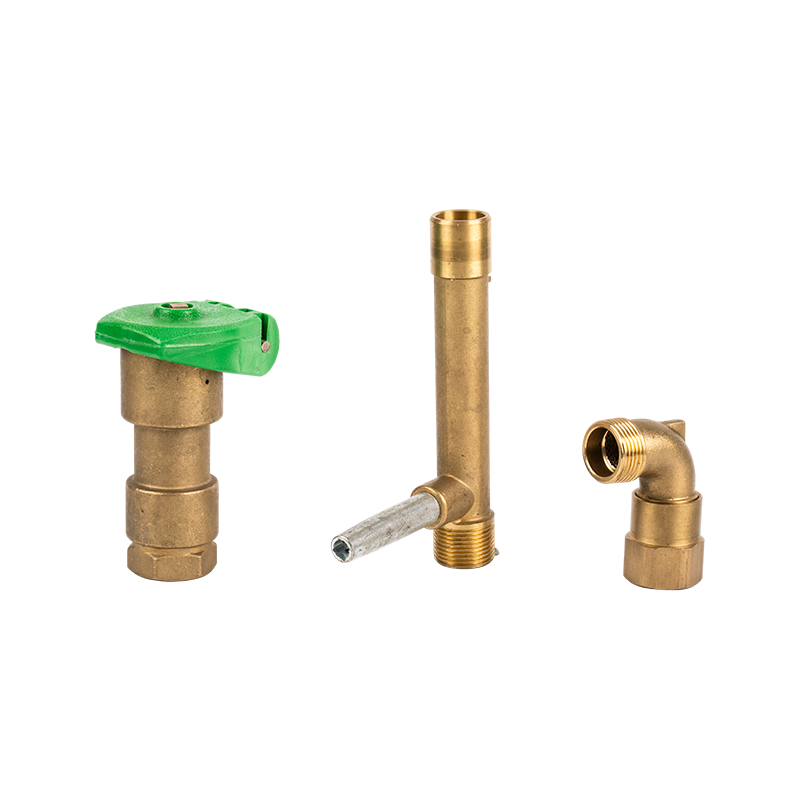 By Admin
By Admin The level of resistance to clogging from debris or sediment in the water supply can vary depending on the design and materials of the irrigation quick coupling valve. However, many modern quick coupling valves are designed with features to minimize the risk of clogging. These features may include:
Filtration systems: Modern quick coupling valves incorporate advanced filtration systems as a frontline defense against clogging from debris or sediment in the water supply. These systems are meticulously engineered to operate seamlessly within the valve assembly, employing finely meshed screens or intricate filter structures strategically positioned to intercept and capture particles suspended in the water. By meticulously filtering incoming water before it reaches critical valve components, these systems prevent the ingress of contaminants that could potentially obstruct flow paths or compromise performance. The accessibility and serviceability of these filters are often prioritized, allowing users to easily remove and clean them as part of routine maintenance, thereby sustaining peak valve performance over an extended service life.
Large flow paths: Quick coupling valves engineered with generously dimensioned flow paths exemplify a proactive approach to combating clogging issues arising from debris or sediment accumulation. By affording ample clearance for water to traverse, these valves mitigate the risk of particles becoming trapped or impeding flow within the valve body. The judicious design of expansive flow paths not only enhances hydraulic efficiency but also serves as a robust defense mechanism against potential blockages, particularly in environments prone to sedimentation or fluctuating water quality. The optimization of flow path geometry and hydraulic profiles is a cornerstone of valve design, facilitating smooth and unrestricted water passage while minimizing turbulence and pressure differentials. As a result, quick coupling valves equipped with large flow paths deliver consistent performance and reliability, even under demanding operating conditions, thereby instilling confidence in users and ensuring uninterrupted irrigation processes.
Self-cleaning mechanisms: The integration of self-cleaning capabilities represents a pinnacle of engineering innovation in quick coupling valve design, offering an autonomous solution to combat clogging without user intervention. These sophisticated mechanisms leverage proprietary algorithms, dynamic components, and intelligent sensing technologies to detect and address potential obstructions in real-time, effectively purging accumulated debris or sediment during routine valve operation. Whether through the induction of turbulent flow patterns, periodic actuation of oscillating elements, or strategic activation of backflushing protocols, self-cleaning mechanisms ensure that any contaminants attempting to impede flow are promptly dislodged and expelled from the valve system.
Durable materials: Quick coupling valves are meticulously crafted from a diverse array of premium materials chosen for their exceptional durability, corrosion resistance, and mechanical integrity in the face of harsh operating environments. Whether it be high-grade plastics, marine-grade stainless steel, corrosion-resistant brass alloys, or other specialized materials, manufacturers prioritize the selection of components that exhibit superior resilience to chemical degradation, environmental stressors, and abrasive wear. These materials undergo stringent quality control measures to ensure compliance with industry standards and specifications, guaranteeing that quick coupling valves uphold their performance characteristics and structural integrity over prolonged periods of service. The adoption of advanced surface treatments, coatings, and protective finishes enhances the longevity and functionality of valve components, safeguarding against the deleterious effects of corrosion, erosion, and chemical exposure.
YR9107 BSP 1" brass quick coupling valve, plastic cap